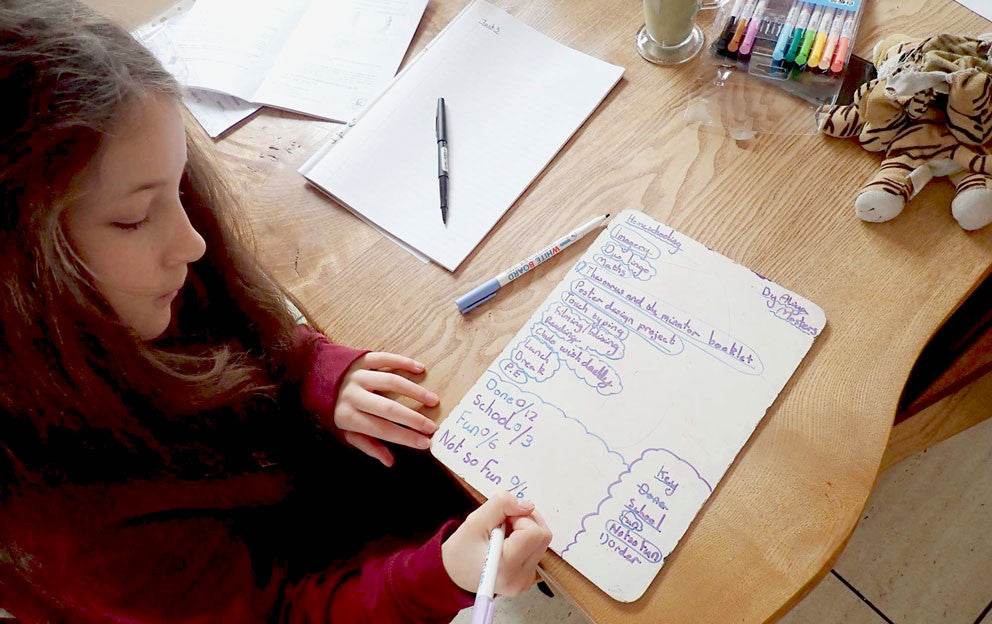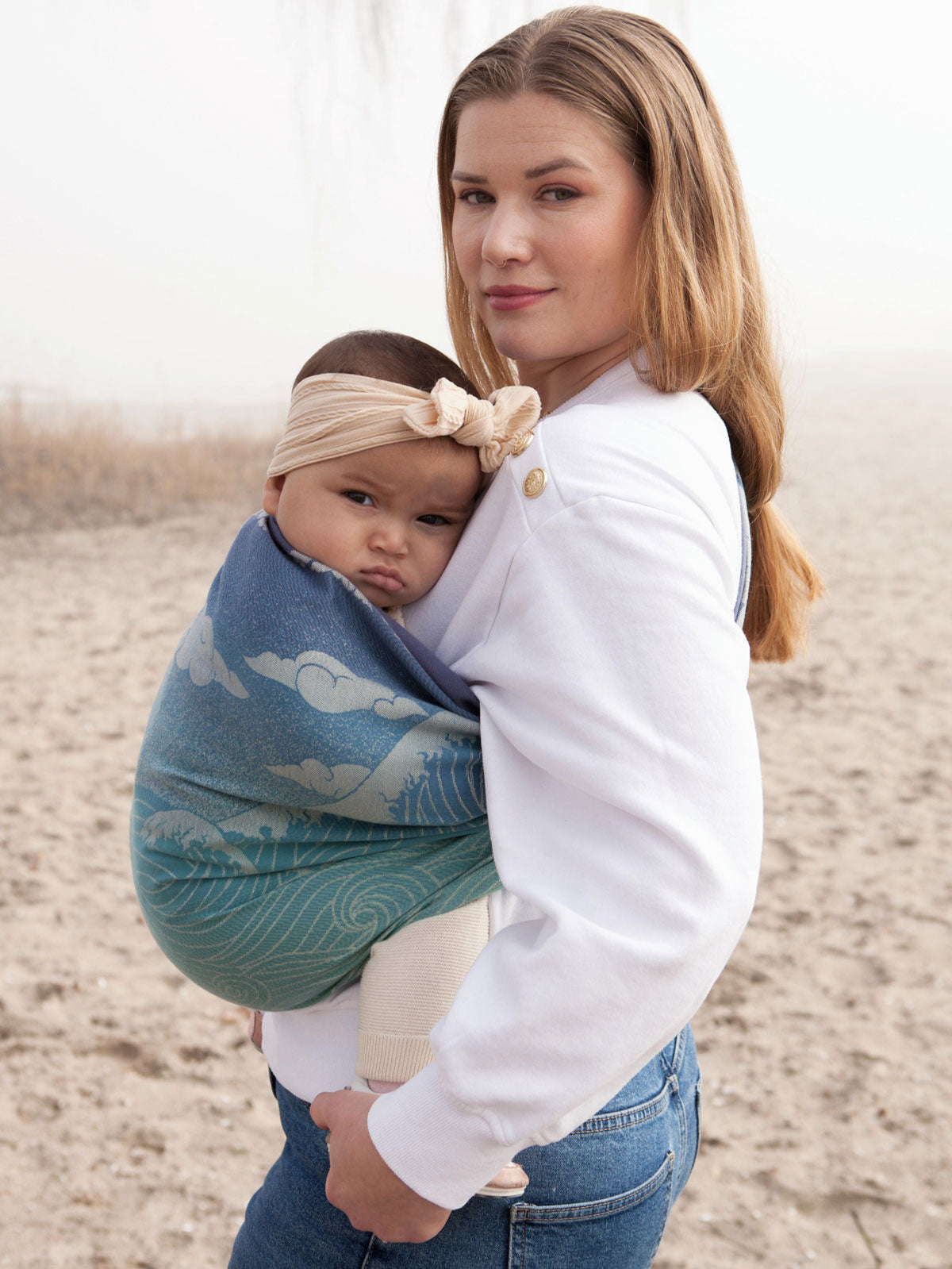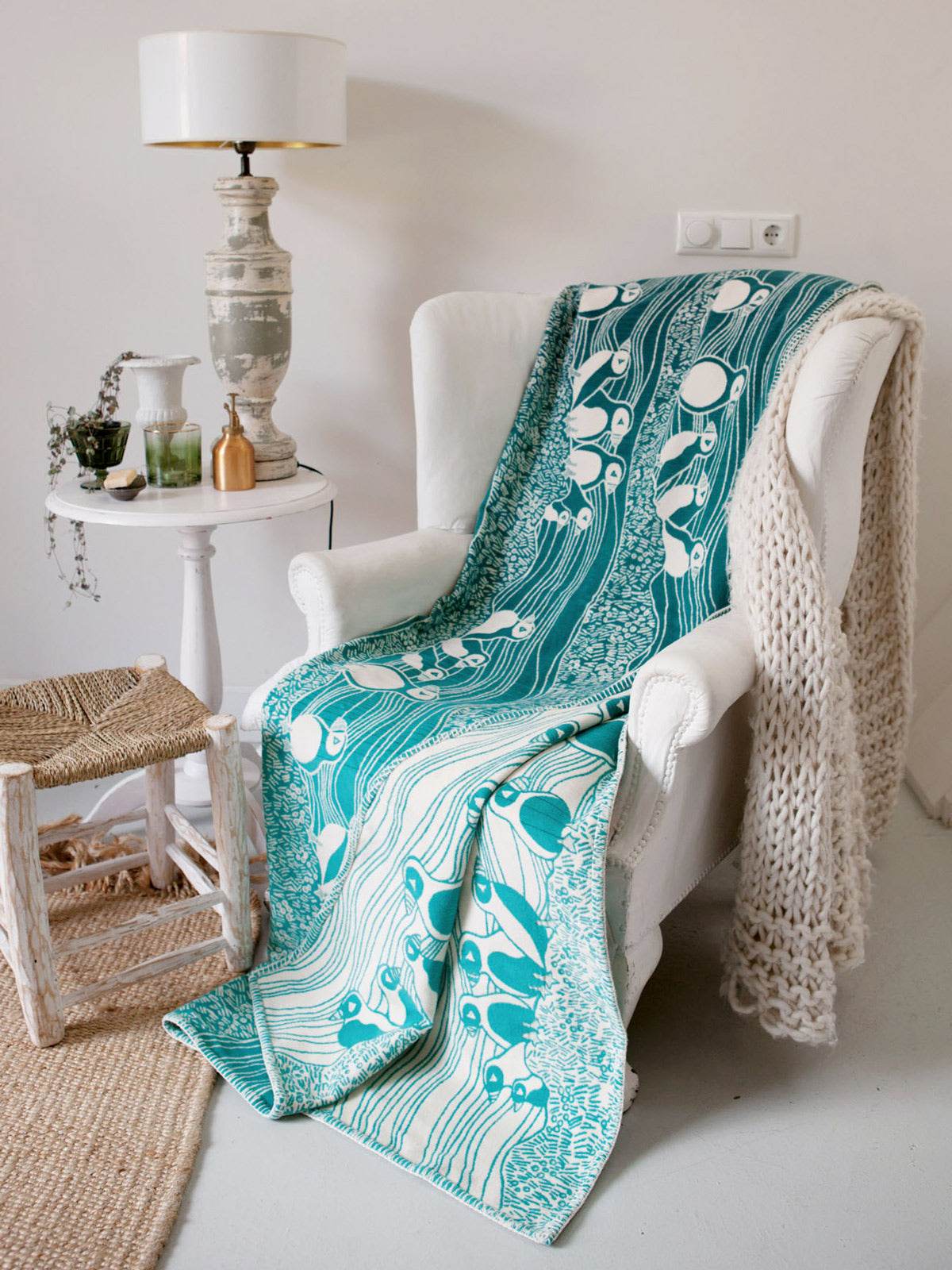It is an unprecedented time when every parent in the UK, and much of the world, has suddenly been required to homeschool.
It can feel overwhelming for those of us who have never thought of taking on this vital educator role, but it's helpful to realise that the beauty of homeschooling is that you can use the learning opportunities in everyday life and allow your child to follow their own interests. The old school model of formal lessons and lecturing need not apply! You may come to realise you have always been playing this vital educator role and you can now just grow into it more fully.
Oscha co-founder and Mum of 3, Zoe, has been flexi-schooling for the last 2 years and talks about letting go of what education 'should' look like, how to make it feel easy and even be able to work from home at the same time.

When my son started to get unhappy about going to school I thought 'I wish I was the kind of person who wanted to homeschool'. But the truth is that I like going to work, being with other adults in a tidy and organised space and focusing on my own tasks. I didn't want to have to think up topics, find resources, to have to coerce my child into paying attention and I didn't have a clue about how to teach.
However, as time went on I thought I could make an agreement with him that he would go to school part-time and I would trial homeschooling part-time. My other kids decided they wanted to join in too and so we began!
As the day approached I kept thinking I should be looking up resources and start lesson planning but somehow I never did and instead decided to follow my instincts and work with the kids on what they wanted to do. We began the day discussing how we wanted it to go and writing up our agreed guidelines for homeschooling, which they all signed.
Some of our agreements were:
- Kids can watch TV for a while before we start but must all be ready (including being dressed, teeth brushed, breakfast eaten) by 9am
- Get the difficult tasks out of the way first thing
- Listen when somebody else talks
- Tasks will be a mix of parent and child choices
- Give everything a good try!
There were a few things I felt they needed to do each time like arithmetic and literacy, but also skills that I think are really useful for their future like touch-typing (we use - typingclub.com). We also cover other things the kids wanted to do; when they suggested things like 'lego building' my immediate reaction was to dismiss it, but actually, when I thought about it, there is a lot of creativity, fine motor skills and storytelling in it. They also loved to make PowerPoint presentations, usually on very random subjects (like cats vs cucumbers or Transformers) but I figured they were learning useful computer skills.
Here is what a typical day looks like:
- Get out the whiteboards - kids write up what they'd like to do for the day, I ask them to add certain items.
- They then number what they will do and build in break and lunch - so they can choose the order of their tasks
- I assist them where they need help and make sure they are moving through the list
- We always have some outdoor time
- If I see that they're getting really into something I'll let them carry on and we adjust the list
I realised that it wasn't so important for the kids to actually keep up with the exact curriculum, just to develop key skills. ... What will they actually need, and not just for high school, what will be useful for life after school?

I was really concerned about making sure the kids kept up with the curriculum and worried about how I would teach key subjects. However, there are loads of online resources which are built to suit different learning levels and so I don't have to know exactly what area of English or Maths they're on at school. The kids find them really appealing and fun (for instance Sumdog).
My partner was a maths teacher at high school and he assured me that all he needed from primary school-aged kids entering high school is that they have their time tables absolutely solid and they understand adding, subtracting and dividing. I realised that it wasn't so important for the kids to actually keep up with the exact curriculum, just to develop key skills. I applied this to other areas too - what will they actually need, and not just for high school, what will be useful for life after school?
Generally, when you really think about what your kids do at school, it is a fair amount of random topics that the teachers use to develop various skills through. So I thought, 'why do I need to follow the school curriculum and have the learning be formal?'
It seemed like learning was everywhere and we could have it be part of everyday life. If they want to bake then they also practice reading (the recipe book), they learn maths skills through weighing and working out volumes, we add in learning about supply chains and resources by considering where the ingredients have come from, its a creative opportunity as they think about how they might want to adapt the recipe, they can learn about nutrition, and it's a life skill which will help them become more self-sufficient.
I want them to love learning and not feel its something they have to suffer through, so I try to keep it fun.

I want them to love learning and not feel its something they have to suffer through, so I try to keep it fun. For instance, I originally tried set routines for Physical Education, which they hated!
So instead I asked them what they play in the playground and they would each choose a game. I can tell you that hide and seek tig really gives you a good workout! I thought they needed to develop throwing and catching skills, which they also weren't keen on, so to make it fun we each made up silly names and you had to shout someone's name before throwing them the ball to them. Maybe it's just my kids, but toilet humour is rife, so I had to shout things like 'I am Diarrhea' or 'Bummy bum bum' before throwing the ball.
I'm not going to pretend that it's all sunshine and smiles. Sometimes I find myself using all sorts of persuasion to get them to do certain things and I can find them incredibly frustrating! However, generally, they are amazing at working through their tasks and being creative and interactive with them.
I've learned to relax, keep things simple and follow their lead as much as possible. I'm sure it's not perfect and there could be a lot more involved ways of doing it, but this works well for us and they are developing in lots of areas whilst also finding that education can be fun and interesting for them.

We'd love to hear your experiences of homeschooling, whether this is brand new to you or you're a seasoned pro! Join our community of parents, Clan Oscha, to share your stories and learn from others.
Read more in this blog series:
Top 10 Homeschooling Tips
Keeping Homeschooling Easy - How to teach Literacy
Keeping Homeschooling Easy - How to teach Physical Education













 https://oschaslings.com
https://oschaslings.com